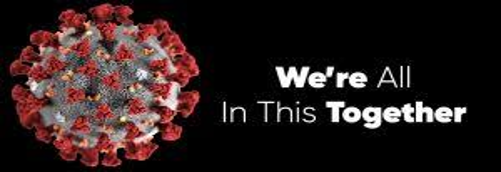Doctor, Maybe Now You Can Understand How I Feel
Nicole Thurston Nov 17, 2020This honest reflection hit me like a ton of bricks. I have heard similar refrains many times over the last few months from my resilient psychooncology patients, my dedicated medical colleagues and from my amazing supportive oncology team.
I heard it from a long term patient who I have followed through his chronic myelogenous leukemia diagnosis and treatment, including an arduous bone marrow transplant. He has just crossed a milestone of celebrating one year since transplant. He was lamenting that only now that we are all worried about our own personal risks of infection; have his friends and providers really understood how isolating and uncertain his last few years have felt. He was frustrated with me because we had to reschedule his next bimonthly visit as a telemedicine because of Covid-19 precautions. Underneath the frustration was the real fear; “doctor, the only time I can guarantee that I will talk to someone who really cares about me during each month, is when I come in for appointments.” He is lonely, not depressed. I understand that better now.
I heard it from another patient who I had only gotten to know recently, and only over telemedicine. She had received a diagnosis of glioblastoma multiforme while she was visiting her family in my town in March, andhad to stay here because of travel restrictions that prevented her from getting back to her family. She had been referred to me by her medical oncologist because of concern about the patient’s capacity to make medical decisions; primarily because she was young and was electing not to pursue traditional treatment. She was emotionally labile and angry during our initial interaction; frequently interrupting my line of inquiry. Perhaps the physical distance with telemedicine allowed the patient to be more direct or perhaps the location of the brain tumor allowed her to be more disinhibited; either way she stated to me very clearly: “I don’t want to answer your questions; all I need is for you to help me get home to my grandkids and for them to know who I am before I die.” She is empowered, not angry. I understand that better now.
I heard it from my supportive oncology team during our weekly meetings. The tone in the room was somber and heavy during early March. Our community spread of Covid-19 had just begun. Our system had not yet implemented an incident command structure that was relaying concrete information in a timely manner; and information was changing on an hourly basis. I co-faciliate this weekly meeting with our social work manager. During a recent meeting he could sense the morale shift in the room and he adeptly transitioned from our previously scheduled agenda to checking in with each person on our zoom call. He led by going first; bravely stating that he was “afraid I am going to die trying to do the right thing .” His authentic revelation granted all of us an opportunity to be real with each other and for each other as we went around the room, offering an individual sample of suffering and an opening for understanding each other. We are human, allowed to care about our own lives too. I understand that better now.
I heard it from my physician and advanced practice provider colleagues. When an email went out to all of my colleagues requesting that we choose what our preferred “surge assignment” would be: ICU, emergency room, or urgent care I panicked. I flashed back to residency years and my ICU and emergency room rotations. A sense of inadequacy started settling in my stomach as well as a bitter taste of guilt with the recognition that it was highly unlikely I would be called into action on the front lines. However, I quickly realized that it was highly likely my oncology colleagues would be called on. Knowing the baseline risks of compassion fatigue, moral injury, and substance use and depression baseline was very high and undertreated in my colleagues; I became very concerned how this additional layer of uncertainty and pressure would affect them. Out of character, I reached out to each of them individually to see how they were doing and to covertly give them my personal contact information should they need to talk. The response that surprised me the most, but shouldn’t have; “you are the first person to ask me how I am doing.” We are carers, but we need care too. I understand that better now.
As leaders, we need to model that it is ok to be anxious, afraid, sad, angry, guilty and overwhelmed during this defining moment of our lives and careers. We need to offer grace and humility to our patients, colleagues, and ourselves. It’s ok to not have all the answers. Most of us just need to feel connected, to feel heard, to feel supported and to feel like we are trying to make a difference.
We are all in this together. We have to be. I understand this better now.